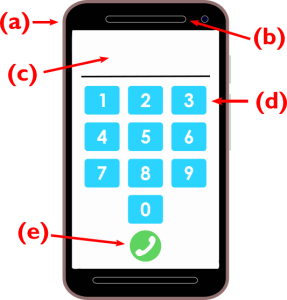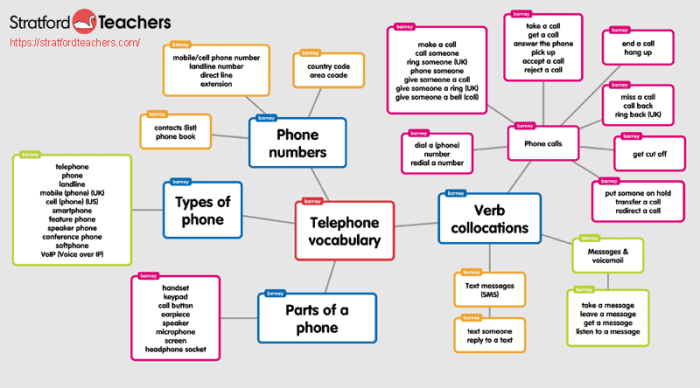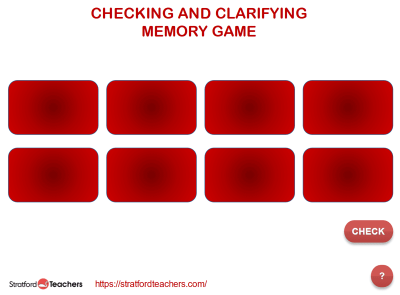Time for a new mind map. This one focuses on the vocabulary of phones and phoning.
The mind map has four sections. Three sections contain the nouns used to talk about and describe phones and phone numbers. The fourth section has a collection of verb collocations for talking about phone calls.
You can view the mind map on Popplet or click the button below to download the image file.
After you have done that, test your knowledge with this short quiz. The answers are at the end of the blog post.
Quiz
Questions 1 – Verb collocations
Which of these verbs form collocations with the words ‘a call’?
-
- make
- miss
- do
- get
- take
- put
- hang up
- give
Question 2 – Common mistakes
Each of these sentences contains a common mistake. Identify and correct each mistake.
- I have to call to my colleagues in Italy.
- I’ll put you through my boss.
- Your client called earlier. Can you call back him?
- In my job, I do a lot of calls with customers.
 Question 3 – part of a phone
Question 3 – part of a phone
Match these words to the parts of the phone.
- earpiece
- screen
- keypad
- handset
- call button
Now check the answers to see if you were right.
Answers
Question 1
make a call
miss a call
get a call
take a call
give someone a call
Question 2
- I have to call my colleagues in Italy.
- I’ll put you through to my boss.
- Can you call him back?
- In my job, I make a lot of calls to customers.
Question 3
- earpiece (b)
- screen (c)
- keypad (d)
- handset (a)
- call button (e)
Other telephone language
Here is some other blogs posts focusing on English for making phone calls.
Checking and clarifying on the phone – 1
Checking and clarifying on the phone – 2
Spellng words with the International Radio Alphabet
If you have any questions about the mind map, leave a comment below.
Do you need to practise speaking English on the telephone? Send us a message.






